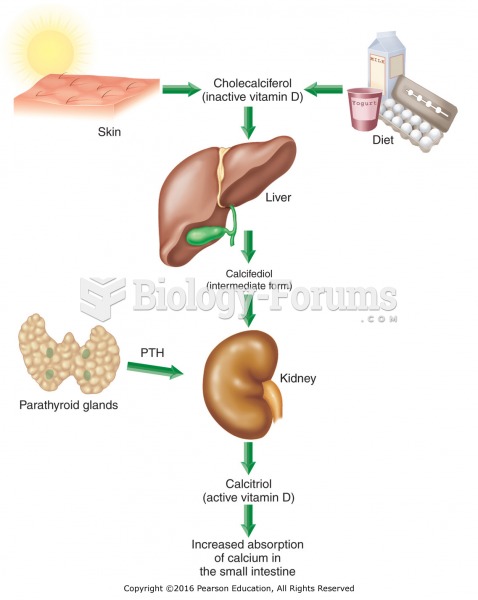|
|
|
Recent studies have shown that the number of medication errors increases in relation to the number of orders that are verified per pharmacist, per work shift.
People with high total cholesterol have about two times the risk for heart disease as people with ideal levels.
In most cases, kidneys can recover from almost complete loss of function, such as in acute kidney (renal) failure.
A cataract is a clouding of the eyes' natural lens. As we age, some clouding of the lens may occur. The first sign of a cataract is usually blurry vision. Although glasses and other visual aids may at first help a person with cataracts, surgery may become inevitable. Cataract surgery is very successful in restoring vision, and it is the most frequently performed surgery in the United States.
More than 30% of American adults, and about 12% of children utilize health care approaches that were developed outside of conventional medicine.







